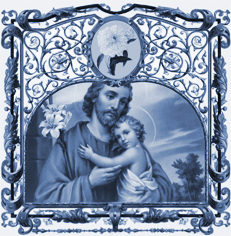 In the Gospel for this Sunday of the 11th Week in Ordinary Time, Jesus speaks to the crowds in a very ordinary, everyday image. He uses the image of a farmer who sows seed in his fields. He makes the point that, while the farmer sows the seed, he can’t actually make it grow into grain. As for how the growth occurs, Jesus says, “[The farmer] knows not how.”
In the Gospel for this Sunday of the 11th Week in Ordinary Time, Jesus speaks to the crowds in a very ordinary, everyday image. He uses the image of a farmer who sows seed in his fields. He makes the point that, while the farmer sows the seed, he can’t actually make it grow into grain. As for how the growth occurs, Jesus says, “[The farmer] knows not how.”
The growth, He says, occurs “of its own accord.” In Greek, the word for that is αὐτομάτη (as in “automatically”). A farmer can’t stare at the seed to make it grow. It doesn’t help if he kicks or screams or yells at it. A good crop requires a farmer to take the initial action of planting the seed, but its growth is mysterious. Analogously, then, the seed of the Kingdom of God—the seed of faith—can be planted, but how it takes root and grows remains mysterious.
Although Jesus is using the image of the farmer to describe the Kingdom of God, He could just as easily be using it to describe fatherhood. Think about it: a father is one who brings forth life. Conceiving any new life requires the initial action of a father sowing seed, but the subsequent growth of that seed is outside of his control. Just like the farmer, a father is resigned simply to accept the mystery by which his child grows and develops.
One of my sisters is a scientist, and she could tell me all about the various proteins and amino acids and DNA strands needed for life. But, even still—even with all that knowledge—we don’t have a totally complete understanding of how life comes into being and develops. Every father, then, stands unknowing before a tremendous mystery.
But, just because the growth of children isn’t completely within a parent’s control, that doesn’t mean there’s nothing they can do. Just like a farmer can water his crops and cultivate them with fertilizer and such, so parents have a responsibility to offer the same type of care to their children.
Parents provide food and shelter and clothing, to be sure. They also offer a warm and loving environment. When parents bring their children to the church to be baptized, there’s a line in the Baptismal ritual that instructs them to “make it [their] constant care to bring [the child] up in the practice of the faith.” They’re told to “see that the divine life which God gives [their child] is kept safe from the poison of sin, to grow always stronger in their hearts.” That’s quite a task!
While the physical growth of children is, in many ways, “automatic,” any parent surely can attest that the training of children in faith doesn’t happen by accident or by chance. It takes the witness of a father and a mother. It takes a father’s humility and a mother’s love. It takes a father’s diligence and a mother’s prayers.
We see enough examples in this world of fatherhood gone wrong. We see in our city, in our neighborhood, sometimes in our own families the terrible effects of absent fathers. We know the struggle of living with cold or abusive fathers. We know all too painfully the damage caused by priests who weren’t the good fathers they should have been. So, even as we celebrate the gift of fatherhood, we need to challenge our fathers—and all the men around us—to be good, strong, truly fatherly figures.
Fatherhood is a beautiful vocation. It’s a calling to be a leader, a protector, and a provider. It’s a calling to be strong and mature and holy. Today, and throughout the year, let’s turn to St. Joseph and pray that all our fathers may be good images of God, Who alone is the perfect Father of us all.
